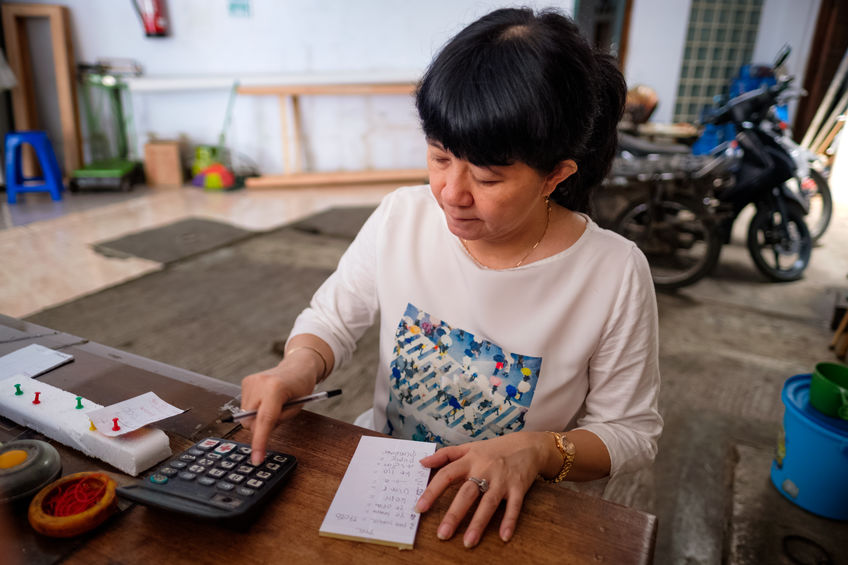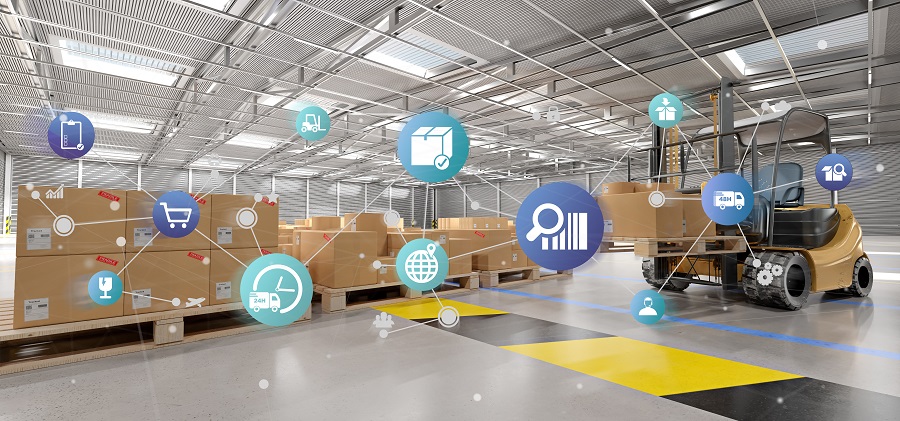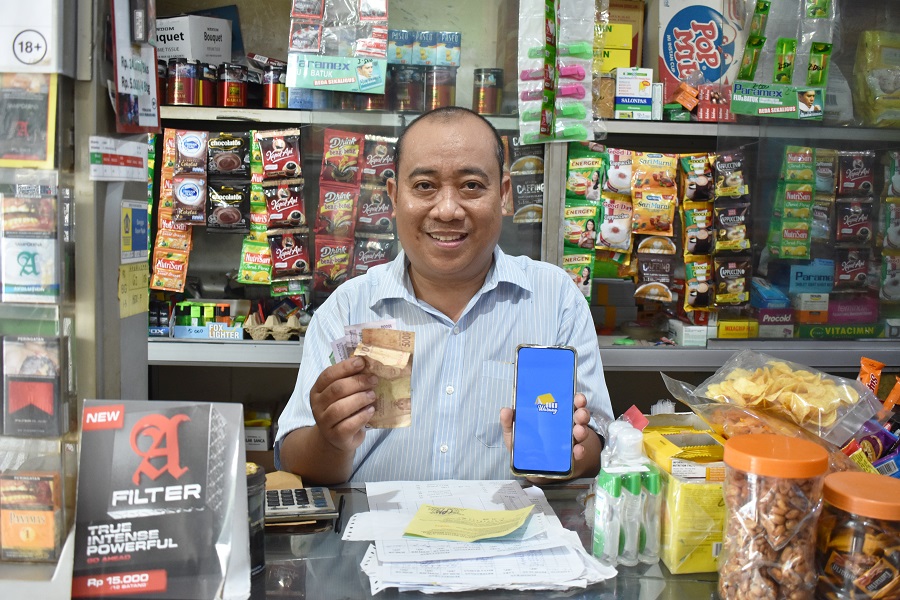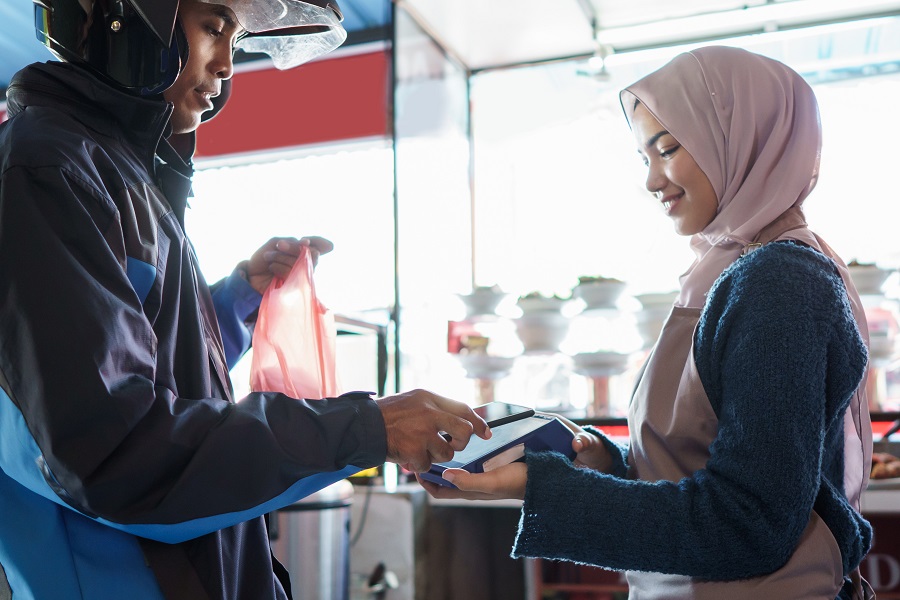The prominence of consumer-focused platforms in Indonesia such as Gojek, Tokopedia, and Traveloka have historically eclipsed the MSMEs opportunity in SEA’s largest economy. However, a closer look at the numbers and challenges faced in this promising sector quickly reveals the vast potential for technology platforms to create massive multi-billion-dollar value and impact.
This is why AC Ventures have a core thesis around technology-enabled solutions addressing the MSME category and why we strongly urge both entrepreneurs and investors to evaluate more opportunities here.
According to the data from the Ministry of Cooperatives and SMEs of The Republic of Indonesia, UMKM (MSMEs) are the engine of growth for the Indonesian economy, with over 60 million registered MSMEs contributing approximately 61 percent of the country’s GDP. Meanwhile, the Central Bureau of Statistics (BPS) in 2018 released, this enormous category employs over 116 million people, which is equivalent to 97 percent of Indonesia’s labor force.
I believe there is tremendous value in providing solutions to MSMEs and opportunities to enter the Indonesian consumer market through these MSMEs.
Fixing fragmented supply chains, financing the underbanked, and expanding limited sales reach

MSMEs in Indonesia range from Micro-enterprises with assets under 50 million IDR (~$3,500), which make up 98 percent of these businesses, to Medium enterprises with 500 million to 10 billion IDR (~$35,000 to $696,000) in assets.
There is great diversity in these businesses, both in terms of scale and nature of industries. While they mostly face similar challenges, the product solutions must be tailored to the size and specific industry, creating an opportunity to generate multiple ventures.
MSME owners face several challenges in their businesses ranging from inefficient sourcing channels for their products, offline management systems prone to human error, lack of access to credit to support or expand their operations, and small sales exposure due to reliance on small physical retail space.
These core challenges can be addressed through technology platforms, which can drive lower costs through greater efficiency, minimize dependence on human operation, open up access to financial services and generate higher sales volumes.
While Indonesia had seen massive internet penetration growth, owners were still hesitant to implement technology (often driven by doubts in reliability and an unwillingness to change). However, COVID-19 placed MSMEs in the position where they needed to adapt, and this has been a critical factor in driving forward the technology adoption of these enterprises.
At the end of 2020, 30 percent of the online consumers in Indonesia are new users providing massive growth in the technology sector such as online payment, eCommerce delivery, eCommerce sales, and online lending.
This phenomenon is an opportunity, and there is still plenty of room to accelerate business growth by adopting more efficient technology for MSMEs.
Fixing fragmented supply chains

According to Euromonitor data, traditional retailers contribute to 70-80 percent of Indonesia’s $300 billion retail market, which is expected to gain another $120 billion by 2025. Hence, despite the enormous growth of online commerce, most business is still offline and primarily in traditional channels.
Unfortunately, the supply chain connecting these millions of retailers to FMCG Principals and Distributors is highly fragmented, resulting in a myriad of pain points faced by retailers such as low pricing visibility, limited SKUs, unreliable and inefficient delivery (often retailers must shut their store to restock inventory).
Meanwhile, principals are looking to increase cost efficiencies in product distribution and, more importantly, to expand into new lucrative new markets.
Ula is an example of a company that solves both of these issues, bringing reliable delivery, best prices, broad assortments, and financing options to traditional retailers to focus on their customers and grow their business. Ula opens up access to thousands of retailers without having to incur high distribution costs (such as CAPEX for warehouses or investing in fleets) for principals.
Financing the underbanked MSMEs

Another key pain point for MSMEs is access to credit. There is an estimated financing gap of $50 to 70 billion to MSMEs in Indonesia, resulting in over $130 billion in lost value creation in this sector alone. There are two major roadblocks for MSMEs to get financing.
Firstly, MSMEs are generally not considered creditworthy by the banks since they typically do not have assets that can be used for collateral. Secondly, bank branches are very limited in tier-2 and tier-3 cities, making it harder for MSMEs to apply for financing.
Indonesia had seen numerous fintech players trying to address this issue. However, even with fintech lenders, there is scarce information on which to understand the financial health of their potential borrowers. As a result of this, data from the Financial Services Authority (OJK) in 2020 shows, fintech lending companies only disbursed a total of $5 billion in 2020, still far from addressing the financing gap.

Historically many of these MSMEs, especially those at micro or “warung” scale, were run simply on a “product in and out” basis with no inventory or transaction tracking.
Bukuwarung saw an opportunity to start providing a fundamental ledger app that made it easy for owners to enter sales information and thus provide data around the scale and frequency of transactions at these businesses.
With these features, Bukuwarung allows MSMEs to make a financial profile that can be used by the banks and/or fintech companies to assess credit risk and thereby bridging the gap for MSMEs to get financial service access.
Expanding sales reach and improving operational efficiencies

For larger SMEs, technology platforms can provide significant benefits such as operational cost savings, more streamlined work processes, a better understanding of customers, and access to additional sales channels.
Given the nature and scale of these businesses, the software solutions may need to be more comprehensive to address the pain points fully. Sales and implementations often require on-the-ground teams to execute, resulting in longer lead times and a slower scale-up rate.
While the market is sizable, many investors often pass on these opportunities citing perceived revenue ceiling from subscription fees. Many SMEs are still reluctant to pay material fees for software, unlike in more mature markets.
The real opportunity here lies in building revenue-generating adjacencies that can be layered onto a platform that has a strong SME user base. This often leads to a more cost-efficient way to scale revenues through downstream and upstream channels for SMEs.
For example, ESB works with thousands of F&B establishments across Indonesia, providing complete end-to-end platform managing orders, payments, and inventory.
Another example is Majoo which provides a full suite of digital tools to stand-alone SMEs from hairdressers, laundromats, and general retailers. The full-service platform runs everything from the point of sales to business management and payroll. Ultimately, to digitize SMEs, they will augment their revenues by enabling their merchants to set up online stores and connect seamlessly to online marketplaces.
With Indonesia’s retail market contributing over US$300BN annually to GDP and MSMEs making up the majority of this, there are substantial value pools to be unlocked through greater digitization of these businesses.
We are confident that multiple companies will emerge from this sector, tackling different parts of the value chain and problems faced by MSMEs. These ventures will become valuable businesses themselves and create enormous impact for the broader Indonesian, enabling SMEs to scale up efficiently and rapidly.

Adrian Li is Co-Founder and Managing Partner at AC Ventures, a merged fund between Agaeti Ventures and Convergence Ventures. ACV is an early stage Indonesia focused technology venture capital fund. ACV manages three funds with a portfolio of over 80 businesses. Notable investments include, Payfazz, Koinworks, Julo, Carsome and M17. Previously, he co-founded several ventures in China and Indonesia.
TechNode Global publishes contributions relevant to entrepreneurship and innovation. You may submit your own original or published contributions subject to editorial discretion.

